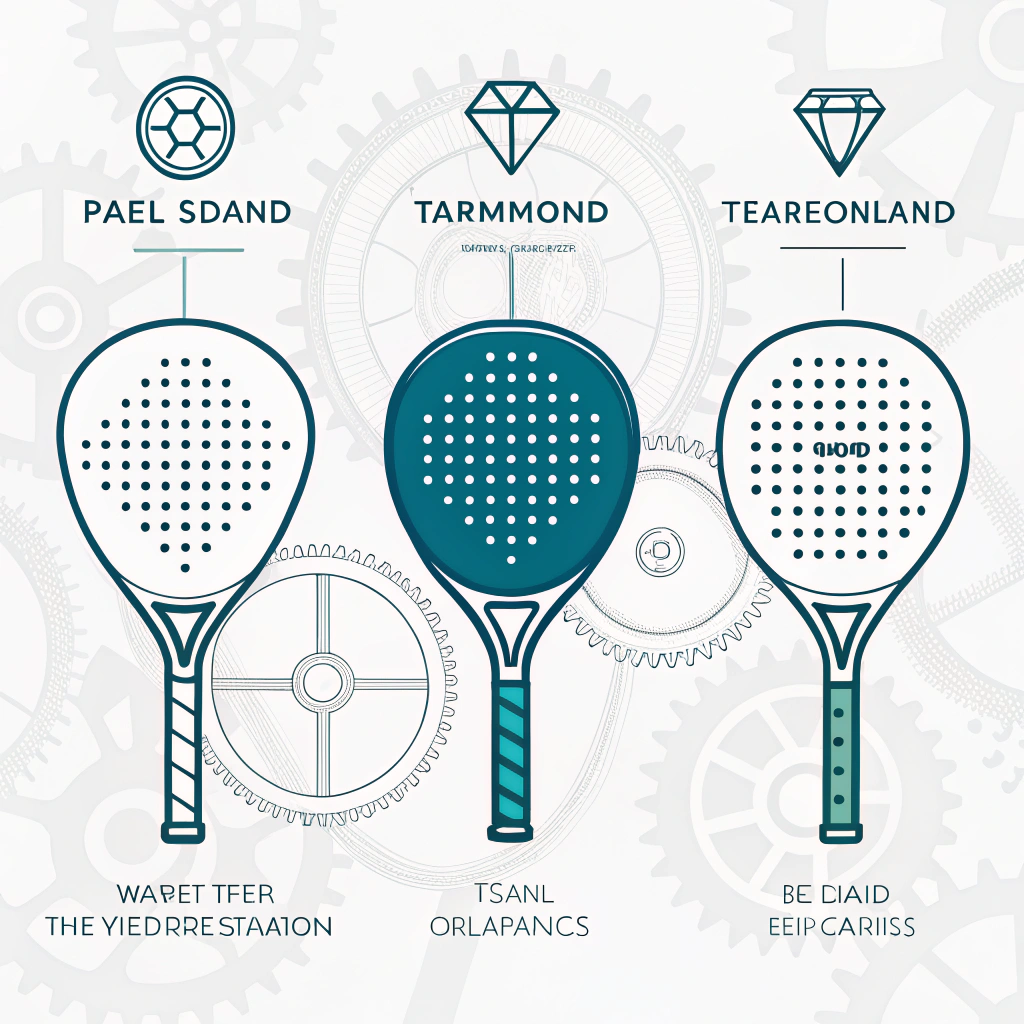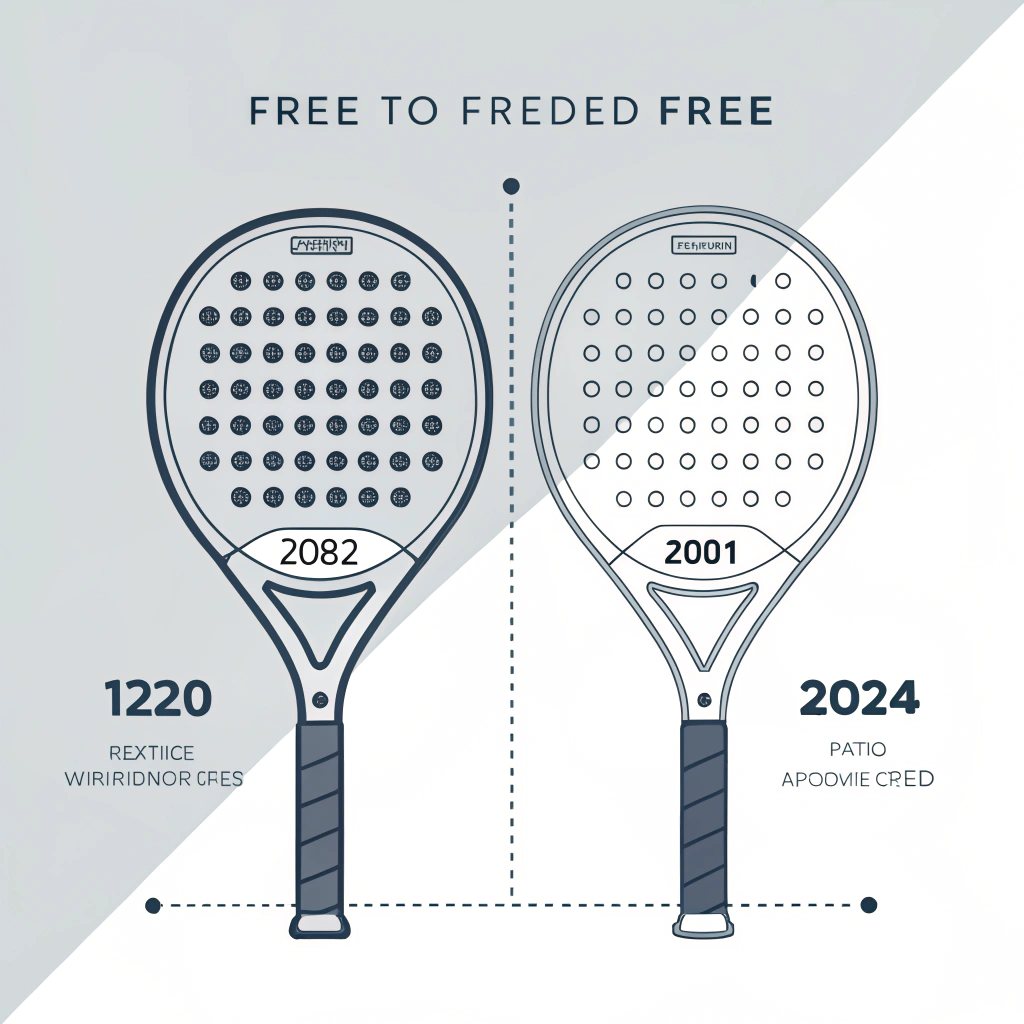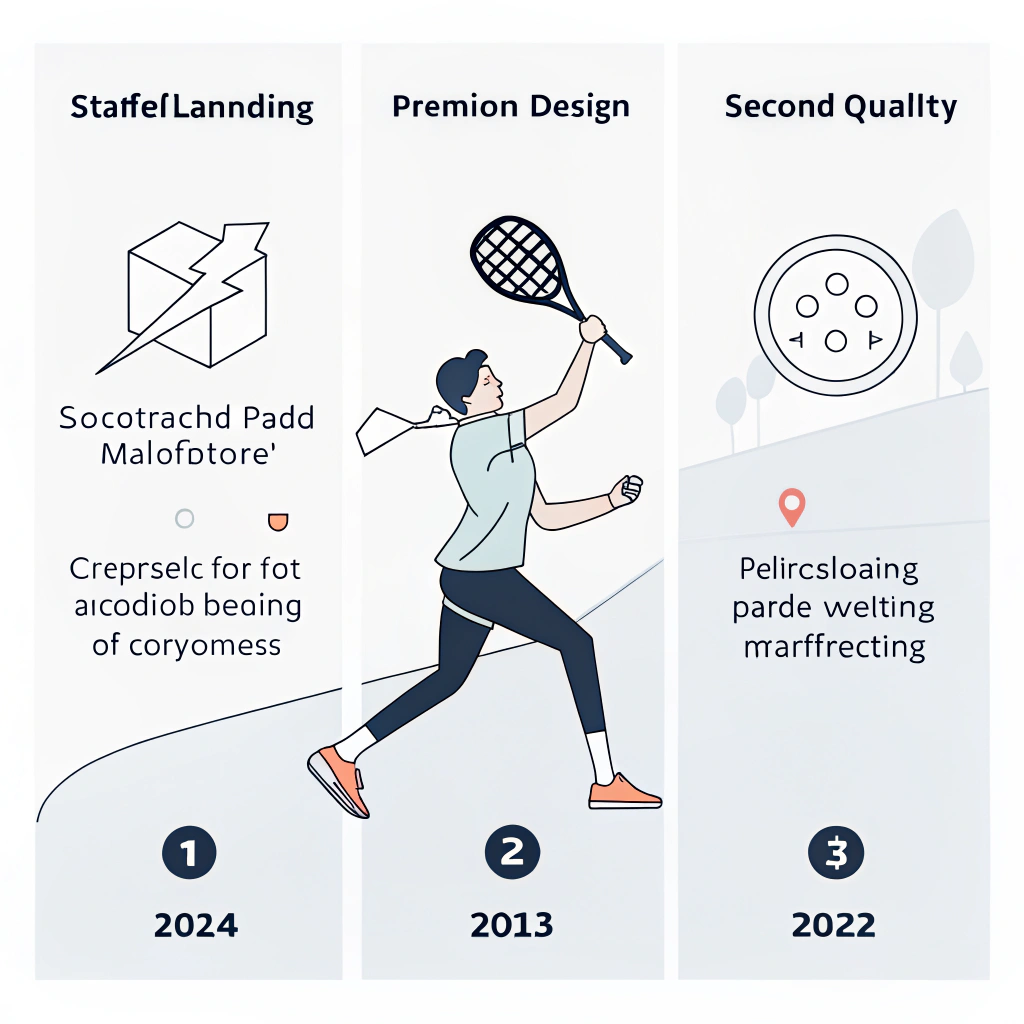In a nutshell, emerging padel brands must choose a manufacturing partner who offers rapid production, full customization, and uncompromising quality, thereby enabling accelerated market success.
For founders, product managers, and decision-makers in the emerging sports and padel industry, selecting the right padel manufacturer can be a game changer. The right partner not only provides high-performance products like OEM padel rackets1 but also supports full customization, rapid prototyping, and offers technical expertise that can bridge the gap between your vision and market-ready products. With competition intensifying, understanding the distinct advantages that advanced manufacturing techniques bring is essential for ensuring quality, speed, and brand differentiation.
In this guide, we will compare key manufacturing partners with a focus on factors that matter most to emerging padel brands: production reliability, innovative customization services, superior material use, and rapid turnaround times. We will leverage real-world experiences and industry data to help you navigate the complexities and decide on a partner that best fits your brand’s strategic vision.
Emerging padel brands often operate under resource and time constraints. Here are some of the most common challenges:
- Limited Production Capacity: Small brands may not have the resources to invest in expensive production facilities. This constraint often forces them to rely on contract manufacturers.
- Customization Demands: Unique branding requires customized designs, from the paddle shape (Diamond, Round, and Teardrop) to personalized printing and color options.
- Speed to Market: In a competitive market, rapid prototyping and quick order fulfillment are essential. Delays in production could result in missed opportunities.
- Quality Consistency: Maintaining high performance while scaling production is a significant challenge. It involves advanced production techniques and consistent quality control.
These challenges necessitate a partner who can help you overcome production limitations and empower your brand with high-quality, innovative padel equipment.
When evaluating manufacturers, there are several core attributes to consider:
A pivotal factor is the ability to offer extensive customization options:
- Full Customization of Rackets: The manufacturing partner should allow you to choose from various racket types such as Diamond, Round, and Teardrop. Additionally, options to customize the printing, colors, and even the hand grip or handle cover logos are valuable.
- Material Versatility: Advanced manufacturers provide materials ranging from glass fiber to high-end carbon fiber2 variants such as 3K, 12K, and 18K. This range allows product differentiation based on performance and target market segments.
Efficient manufacturing involves both speed and reliability:
- Rapid prototyping3 and Sampling: Quick prototyping means that you can see a sample of the customized product faster, thereby shortening the iterative design process.
- Fast Turnaround Times: On-time delivery is critical. Rapid production cycles help you meet market demand without incurring inventory or sales losses.
Consistent performance in competitive sports is directly linked to rigorous quality control:
- Precision in Production: Advanced production techniques ensure that every racket, whether made from carbon fiber or other composite materials, meets the industry standards.
- Material Integrity: Ensuring that the materials such as carbon fiber layers are correctly applied and consistently produced, increasing durability and performance.
A well-integrated supply chain is necessary for smooth operations:
- End-to-End Solutions: Some manufacturers also offer comprehensive solutions including padel balls alongside rackets, ensuring that all your product components meet the same quality standards.
- Pricing and Cost Efficiency: Competitive pricing strategies combined with quality materials can significantly enhance your brand’s market competitiveness.
The comparison table below highlights the key decision factors and contrasts the industry norms with the high standard of NEX Padel. This table should serve as a quick reference for understanding how superior manufacturing can directly impact your brand’s success.
| Feature | Typical Padel Manufacturer | NEX Padel Advantage |
|---|---|---|
| Customization Options | Limited to standard designs | Full customization: racket shape, print, colors, logo on hand grips and covers |
| Material Quality | Basic composite materials | Advanced materials: glass fiber, 3K, 12K, 18K carbon fiber options |
| Production Speed | Longer turnaround times | Rapid prototyping and faster delivery through efficient workflow |
| Quality Control | Inconsistent quality control | Rigorous QC procedures, precision manufacturing techniques |
| Supply Chain Integration | Disjointed component sourcing | End-to-end production including padel balls with monitored quality |
| Brand Support & Innovation | Minimal technical support | Expert guidance, market insights, and innovation-driven solutions |
This detailed comparison shows that partnering with a manufacturer like NEX Padel can provide you not only with enhanced product quality and reliable production but also with the strategic insights necessary to stay ahead in a competitive market.
Customization has become more than just a feature—it’s a necessity. In today’s market, successful padel brands need to deliver unique products that truly represent their identity. Here are some of the actionable insights for efficient production:
- Tailor Made Designs: With NEX Padel, you can opt for a wide range of design elements. This flexibility enables you to reach niche markets and respond quickly to customer trends.
- Controlled Quality through Advanced Techniques: Utilizing methods such as precision bonding5 and composite layering, manufacturers ensure each product is built to exacting standards. This insight helps in reducing return rates and building consumer confidence.
- Shorter lead Times: Rapid prototyping and quick production cycles mean that even seasonal collections can be produced without compromising quality. The ability to produce samples quickly allows for faster feedback loops between design and production.
For example, emerging padel brands that have partnered with NEX Padel report a significant decrease in the time-to-market, which is critical for capturing emerging trends and addressing seasonal market fluctuations.
A high-performance padel racket’s success hinges on material integrity and precise build quality. NEX Padel takes quality assurance seriously by implementing rigorous testing and monitoring regimes. Let’s explore the quality control process in depth:
- Material Selection: Selection of premium materials like 3K, 12K, and 18K carbon fiber variants is crucial. Each batch is subjected to tensile, flexural, and fatigue tests to ensure durability.
- Advanced Manufacturing Techniques: Techniques such as automated layering and precision cutting are employed to maintain consistency. This level of detail minimizes errors in hard-to-detect internal flaws.
- Final Inspection: Before any product leaves the facility, it undergoes a thorough final inspection which includes both automated and manual assessments. This dual approach ensures that each padel racket meets the high-performance standards expected by professional players and enthusiasts alike.
This rigorous quality assurance process is not just about maintaining design integrity but about ensuring long term performance in the field. Each test and measurement contributes to building a reliable product that champions your brand's promise.
To illustrate the importance of selecting the right manufacturing partner, consider the following real-world scenarios:
-
Case Study 1: Rapid Market Entry for a Start-Up Brand
A start-up brand aimed at capturing a young, fashion-forward market segment partnered with a high-performance manufacturer. The manufacturer’s capability to rapidly prototype designs allowed the brand to launch a limited edition product series within weeks. The result was a successful market entry that established the brand's reputation for innovation. -
Case Study 2: Consistent Quality for a Premium Sports Line
An established sports brand faced challenges with quality control across multiple suppliers. By consolidating production with a single source known for rigorous standards and comprehensive customization, the brand not only improved product consistency but also enhanced its value proposition in a competitive market. This led to higher customer satisfaction and increased repeat business. -
Case Study 3: Customization That Enhances Brand Identity
A mid-sized company looking to differentiate itself opted for full customization on every element of its padel rackets—from shape to personalized hand grips. With the support of advanced manufacturing techniques, the company reported an increase in brand recognition and customer loyalty, which translated to better market positioning.
These cases underscore the importance of advanced production techniques and reliable supply chain management in building a competitive padel brand.
Based on our analysis, here are several strategic recommendations for emerging padel brands when choosing a manufacturing partner:
-
Assess Customization Capabilities:
Ensure that the manufacturer can provide full customization of the product—from base materials to the final printed details. This will allow for tailored product differentiation. -
Prioritize Quality Assurance:
Look for partners who employ advanced quality control measures. Detailed inspection techniques and robust testing regimes are non-negotiable traits for superior product performance. -
Evaluate Production Speed:
Fast prototype turnaround and on-time delivery are key. Your manufacturer should have streamlined processes to accommodate rapid design changes and urgent orders. -
Consider End-to-End Integration:
A partner who can offer a full solution, including padel balls and accessory customization, simplifies your supply chain and ensures consistency across your product range. -
Analyze Cost-Effectiveness:
While quality and customization might come at a premium, ensure that the pricing structure allows enough margin for your brand to be competitive in the market.
In addition to these recommendations, emerging brands should also consider requesting detailed production timelines, sample reviews, and quality certifications before finalizing any long-term partnerships.
In conclusion, selecting the right padel manufacturer is a critical decision that can dramatically impact your product quality, speed to market, and overall brand differentiation. By focusing on key factors such as customization capabilities, production speed, material quality, and supply chain integration, you position your brand for success in a competitive landscape.
Partnering with a manufacturer like NEX Padel not only provides you with the latest in advanced production techniques but also brings industry insights and reliability. These elements enable you to overcome resource limitations and reach your market goals more efficiently. As you move forward, a detailed evaluation of potential partners using comparison tools like the one presented above will help ensure that your manufacturing decision is both informed and strategic.
Take action today by reaching out to experts who understand the nuances of padel manufacturing—your next big market breakthrough could be a partnership away.
Q1: What are the key benefits of partnering with a padel manufacturer?
A1: Partnering with a leading manufacturer provides full customization, rapid prototype turnaround, and rigorous quality control, ensuring that your products meet high-performance standards and help differentiate your brand in a competitive market.
Q2: How does customization impact the success of an emerging padel brand?
A2: Customization allows brands to tailor designs, colors, logos, and even racket shapes to resonate with their target audience. This flexibility strengthens brand identity and can lead to increased market acceptance and consumer loyalty.
Q3: Why is rapid production important for small sports brands?
A3: Rapid production minimizes time-to-market, allowing emerging brands to respond quickly to trends and seasonal opportunities. Fast turnaround times also reduce inventory risks and ensure that quality standards are maintained even under tight deadlines.
-
OEM padel rackets: Click to learn about the benefits and challenges of using OEM products in sports equipment manufacturing, including design, quality assurance, and cost-effectiveness. ↩ ↩
-
Carbon fiber: Click to read about carbon fiber properties, its manufacturing nuances, and how different variants (3K, 12K, 18K) impact product performance and durability. ↩ ↩
-
Rapid prototyping: Click to explore how rapid prototyping accelerates product development, reduces time-to-market, and fosters innovation in manufacturing processes. ↩ ↩
-
Supply chain integration: Click to understand the value of integrated supply chains, strategies for end-to-end management, and their impact on production efficiency and quality consistency. ↩ ↩
-
Precision bonding: Click to discover the role of precision bonding in advanced manufacturing, its process benefits, and how it contributes to superior product integrity. ↩ ↩







